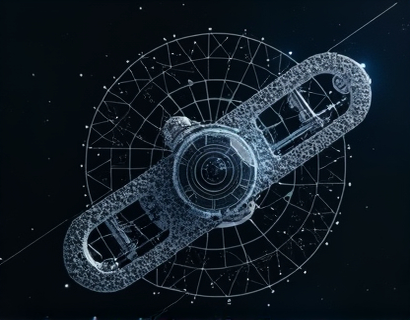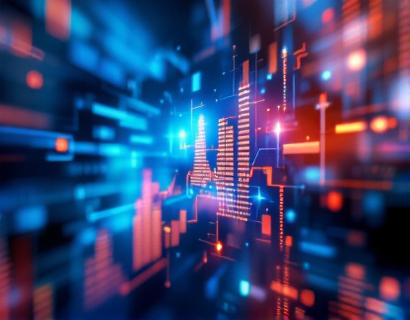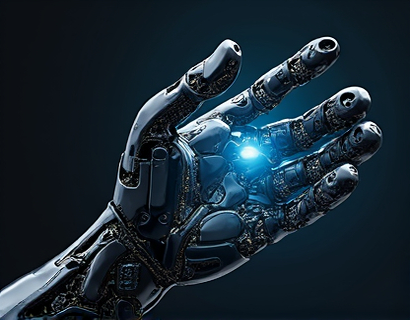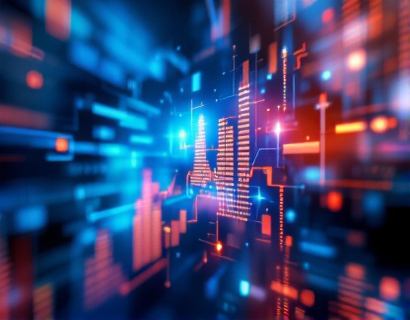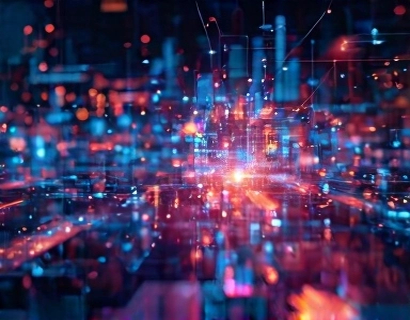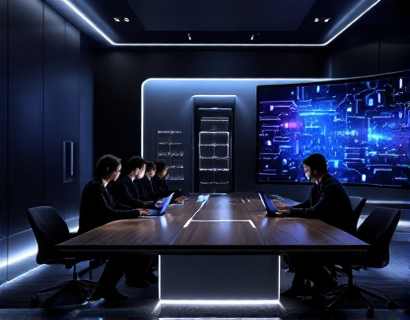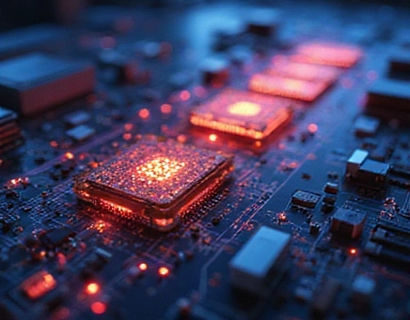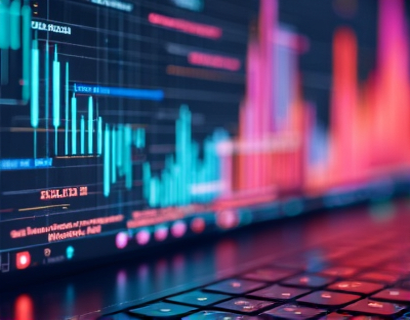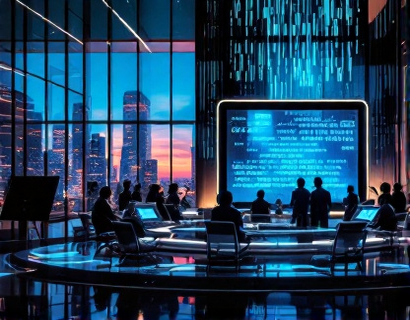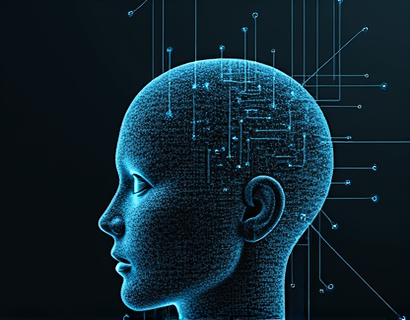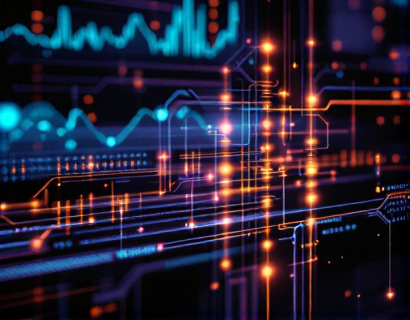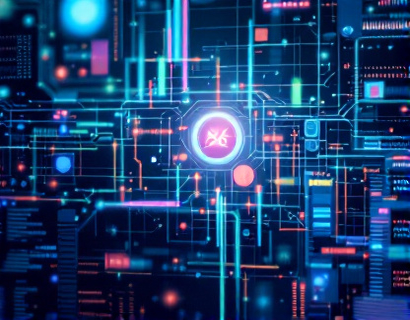Decentralized Organization Dynamics: Mastering the Software Stack for Universal Governance and Efficiency
In the rapidly evolving landscape of digital governance and decentralized systems, the concept of universal decentralized organizations has gained significant traction. These organizations leverage advanced software to redefine traditional hierarchical structures, fostering a new paradigm of governance, collaboration, transparency, and efficiency. This guide delves into the intricacies of how sophisticated software can transform the creation and operation of decentralized organizations, providing enthusiasts and professionals with a comprehensive understanding of the tools and dynamics at play.
Understanding Decentralized Organizations
Decentralized organizations, often built on blockchain technology, operate without a central authority, distributing power and decision-making across a network of participants. This decentralized approach aims to eliminate single points of failure, reduce censorship, and enhance trust among participants. The software stack that underpins these organizations is crucial for realizing their full potential, as it facilitates seamless interactions, data management, and governance mechanisms.
The Role of Software in Decentralized Governance
Effective governance in decentralized organizations relies heavily on robust software solutions. These solutions enable the creation of smart contracts, which are self-executing contracts with the terms directly written into code. Smart contracts automate and enforce agreements, reducing the need for intermediaries and ensuring transparency and accountability. For instance, a smart contract can automatically release funds upon the completion of predefined conditions, such as the delivery of goods or services.
Beyond smart contracts, decentralized governance platforms utilize voting mechanisms to allow participants to propose and vote on changes to the organization's rules and policies. These platforms often employ on-chain and off-chain voting systems, ensuring that decisions are both secure and accessible. On-chain voting leverages the blockchain's immutable ledger to record votes, while off-chain voting may use decentralized applications (dApps) to gather and tally votes before recording them on the blockchain.
Enhancing Collaboration Through Decentralized Tools
Collaboration is a cornerstone of decentralized organizations, and advanced software plays a pivotal role in facilitating effective teamwork. Decentralized collaboration platforms provide tools for communication, project management, and file sharing, all within a trustless environment. These platforms ensure that all participants have equal access to information and resources, fostering a culture of transparency and inclusivity.
One key feature of these platforms is the use of decentralized identifiers (DIDs) and self-sovereign identity systems. DIDs allow users to control their digital identities without relying on centralized authorities, enhancing privacy and security. This self-sovereign approach ensures that users can verify their identities and credentials through decentralized networks, streamlining the onboarding process and reducing friction.
Ensuring Transparency and Accountability
Transparency is a fundamental principle of decentralized organizations, and software solutions are instrumental in achieving this goal. Blockchain technology's inherent transparency allows all transactions and interactions to be recorded on a public ledger, visible to all participants. This level of transparency builds trust and accountability, as actions cannot be hidden or altered once recorded.
Additionally, decentralized organizations can implement auditing tools and dashboards to monitor the execution of smart contracts and the flow of funds. These tools provide real-time insights into the organization's activities, enabling stakeholders to track progress and identify potential issues promptly. By making data accessible and verifiable, these tools help maintain the integrity of the organization and its operations.
Optimizing Efficiency with Advanced Software Stack
Efficiency is critical for the sustainability and growth of decentralized organizations. A well-designed software stack can significantly enhance operational efficiency by automating routine tasks, optimizing resource allocation, and streamlining workflows. This section explores key components of an optimal software stack for decentralized organizations.
Decentralized Storage Solutions
Traditional centralized storage solutions are vulnerable to outages and data breaches. Decentralized storage solutions, such as InterPlanetary File System (IPFS), address these challenges by distributing data across a network of nodes. IPFS ensures that files are stored redundantly and can be retrieved efficiently, even if some nodes fail. This decentralized approach not only enhances reliability but also reduces costs associated with data storage and bandwidth.
Decentralized Identity Management
Effective identity management is crucial for secure and seamless interactions within decentralized organizations. Decentralized identity solutions, like Self-Sovereign Identity (SDI), empower users to manage their digital identities independently. These solutions use cryptographic techniques to create and verify identities, allowing users to prove their identity and permissions without revealing unnecessary information. This approach minimizes the risk of identity theft and enhances user control over personal data.
Decentralized Marketplaces and Token Economies
Decentralized marketplaces facilitate the exchange of goods, services, and assets within the organization. These marketplaces often utilize native tokens to incentivize participation and reward contributors. Tokens can represent various forms of value, such as voting rights, access to premium features, or rewards for completing tasks. By leveraging token economies, decentralized organizations can align the interests of participants and encourage active engagement.
Smart contracts play a vital role in these marketplaces by automating the issuance, trading, and distribution of tokens. They ensure that transactions are executed fairly and transparently, reducing the need for trust in intermediaries. This automation not only speeds up processes but also reduces the potential for errors and fraud.
Case Studies and Real-World Applications
To illustrate the practical applications and benefits of advanced software in decentralized organizations, let's examine a few real-world examples.
Decentralized Autonomous Organizations (DAOs)
DAOs are perhaps the most well-known application of decentralized software in organizational governance. A DAO operates as a community-driven entity, governed by a set of rules encoded in smart contracts. Members of the DAO can propose and vote on changes, ensuring that decisions reflect the collective will of the community. The DAO Token Economy Fund (DEEF) is a notable example, where token holders can propose and vote on projects to fund, fostering innovation and community-driven development.
Decentralized Finance (DeFi) Platforms
DeFi platforms leverage blockchain technology to create financial systems that are open, transparent, and accessible to everyone. These platforms offer a range of services, including lending, borrowing, and trading, all facilitated by smart contracts. Uniswap, a decentralized exchange, is a prime example, allowing users to swap tokens without intermediaries. The platform's liquidity pools and automated market makers (AMMs) ensure efficient and fair trading, enhancing the overall user experience.
Decentralized Social Networks
Decentralized social networks aim to address the privacy and censorship concerns of traditional platforms. Mastodon, for instance, is a federated social network where users can join and create communities (instances) based on shared interests. Each instance operates independently but can interoperate with others, ensuring a decentralized and resilient network. The use of blockchain and decentralized storage solutions enhances data security and user control over personal information.
Challenges and Future Directions
While the potential of decentralized organizations is vast, several challenges must be addressed to realize their full potential. Scalability remains a significant issue, as many blockchain networks struggle to handle high transaction volumes efficiently. Layer 2 solutions, such as state channels and sidechains, are being developed to alleviate these bottlenecks and improve performance.
Another challenge is the user experience. Decentralized systems can be complex and intimidating for new users, hindering adoption. Simplifying interfaces and providing intuitive onboarding processes are essential for making these systems more accessible. Education and community support also play a crucial role in empowering users to navigate and contribute to decentralized organizations.
Looking ahead, the integration of advanced technologies such as artificial intelligence (AI) and machine learning (ML) can further enhance the capabilities of decentralized software. AI can optimize decision-making processes, predict trends, and automate complex tasks, while ML can improve the efficiency and accuracy of decentralized systems. The synergy between these technologies and decentralized governance models holds the promise of creating more intelligent, adaptive, and resilient organizations.
In conclusion, the software stack that underpins decentralized organizations is a powerful tool for transforming governance, collaboration, transparency, and efficiency. By leveraging advanced technologies and best practices, enthusiasts and professionals can build and operate decentralized organizations that are truly inclusive, secure, and effective. As the field continues to evolve, the potential for innovation and positive impact is immense.



